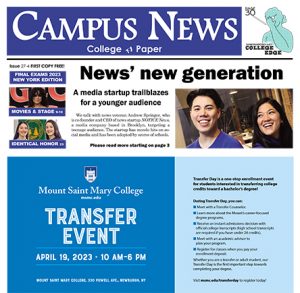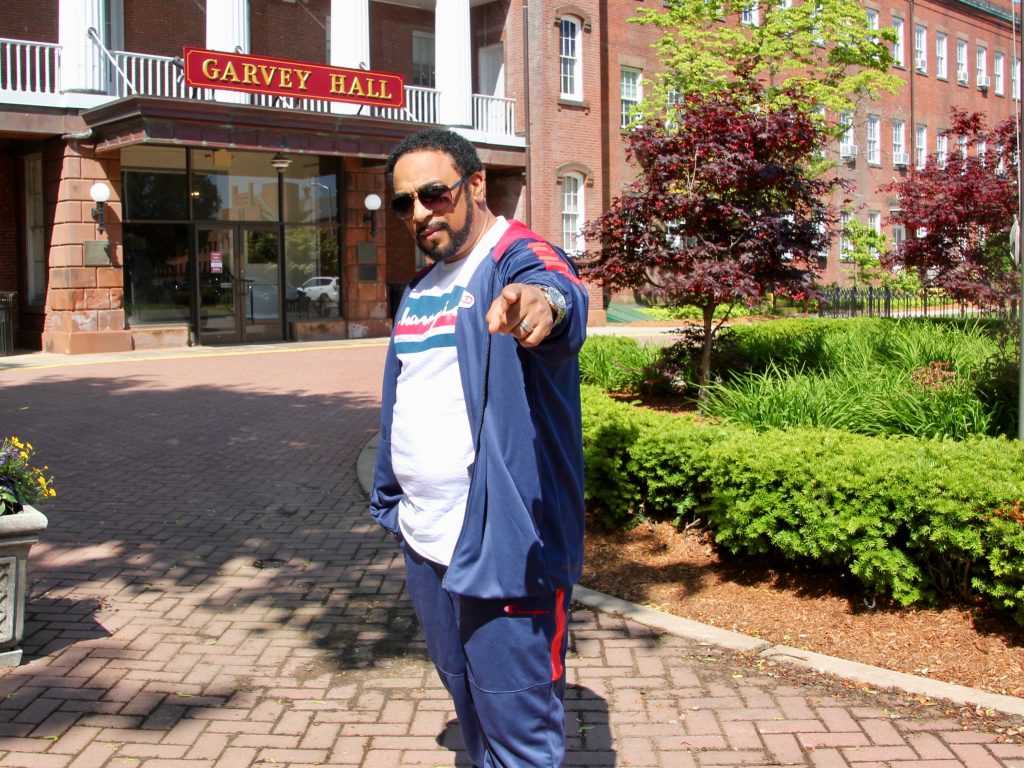By Nancy Scuri
Campus News
Today’s college students, having survived pandemic lockdowns and everything that went with it, are now preparing to take their place in the workforce. After the Great Resignation and seismic shifts in the banking and tech sector, new grads are on shaky ground as they prepare to leave campus for jobs leading (hopefully) to promising careers.
Campus News recently sat down with Jordana Dlugacz, a Human Resources Professional who has been in the industry for over 15 years. She gave her thoughts on the current job market, as well as advice to help graduates find the right position for them. (The interview has been edited for clarity and length.)

What unique challenges are new college graduates seeing now?
Due to the forecasted poor economy and inflation, companies conducted layoffs and scaled back on hiring. Inflation is coming down, but jobs aren’t as plentiful as they were last year. It may take new graduates longer to find their first role. The important thing is to stay confident and be prepared.
What can they do now to better position themselves when they graduate?
In addition to the classic internship with a good company, students should join the professional organization for their chosen field. These organizations often have discounted memberships for students. Members can subscribe to email newsletters and even attend networking events. Most colleges and universities also have job centers where students can get help with resumes, job searches, and interview advice. There are even services that will help students get interview clothes at little to no cost (an example is Career Couture in Suffolk County, NY: www.suffolkcountyny.gov/Departments/Labor/Career-Couture). Students can also reach out to their professors who teach in the discipline they are looking to work in. The instructors know the individual student, as well as people working in the field, and are a great source for career and networking assistance. Things to focus on is the resume, interviewing skills (including “mock interviews,” where you can practice and get feedback on interview questions and responses), as well as having a few well-thought sentences giving an overview of your skills, work experience, and what type of position is being sought, commonly referred to as “the elevator pitch.”
AI is poised to take over jobs like copywriting and other tasks that were traditionally entry-level positions. How can people entering the job market pivot?
I don’t have experience in that industry; however, I still believe that there needs to be a human element in everything. AI may find a place for routine tasks, but a company probably isn’t going to farm out major projects to an AI keyword search. This is all new territory, so right now, the thing to do is keep honing skills and stay alert for opportunities to shine.
How relevant are things like cover letters and thank you notes in today’s workplace? How can non-traditional students who may be getting back into the job market update resumes to make them more contemporary?
As a recruiter, I’ll be honest – I don’t usually read cover letters. Most applicant tracking software (ATS) automatically brings up the applicant’s resume and that’s what I read. People have the wrong idea about ATS systems. The same rules you’ve always learned are still true: Apply for the jobs you’re interested in and qualified for, make sure you include key words. Also, use those key terms in context! Typing “sales sales sales” in white at the end of your resume will be found out, and it will not make a good impression. Thank you notes, however, are very welcome and professional. And you don’t have to send it by snail mail, an email will suffice. If you’re an older student, or someone who is changing careers, it’s especially important to focus on what skills and experience you bring to the table (these can include volunteer and class work, where appropriate). A skill-focused, rather than chronological resume could be a good choice. This is where your career center can be a huge help. Another thing that can help students stand out from the crowd is the ability to demonstrate “soft skills.” They include time management, adaptability, and creative problem-solving skills. They are not limited to any particular industry and can be a real asset.
What advice do you have for students that may be frustrated with their job searches?
It’s easy to be discouraged. Keep at it! Eventually you’ll find the right fit for you (and the company!).
 Jordana Dlugacz has been working in the HR and talent acquisition field for over 15 years. She holds a Masters degree in Human Resource Management from Stony Brook University and is a member of the Society for Human Resource Management. Jordana is also the founder and Producing Artistic Director of ZEN Productions, a Long Island theater company.
Jordana Dlugacz has been working in the HR and talent acquisition field for over 15 years. She holds a Masters degree in Human Resource Management from Stony Brook University and is a member of the Society for Human Resource Management. Jordana is also the founder and Producing Artistic Director of ZEN Productions, a Long Island theater company.
 Nancy Scuri is a freelance writer and editor with over fifteen years of teaching experience at the college level. Have a writing question? You can reach her at nancyscuri.substack.com.
Nancy Scuri is a freelance writer and editor with over fifteen years of teaching experience at the college level. Have a writing question? You can reach her at nancyscuri.substack.com.








Facebook Comments